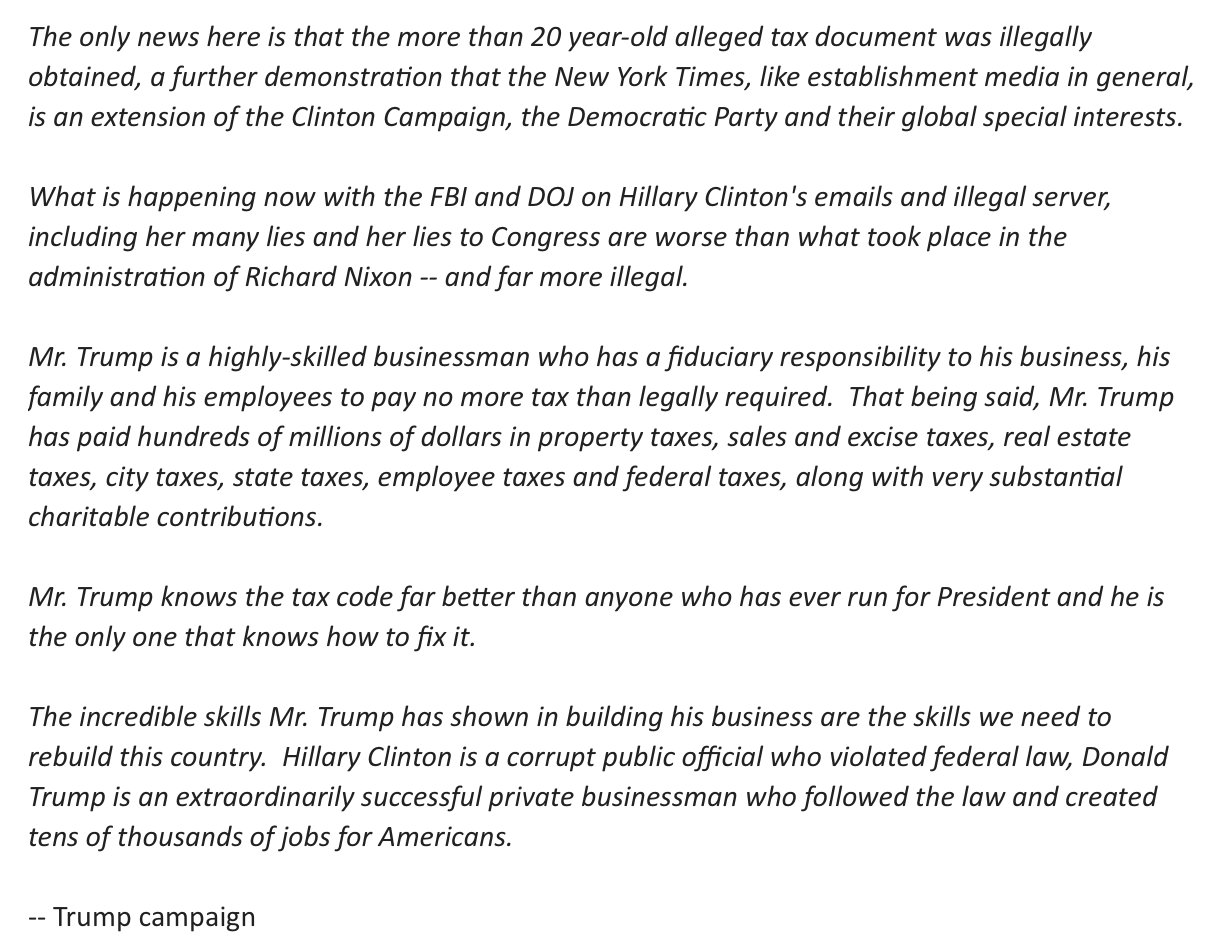The $916 million loss certainly could have eliminated any federal income taxes Mr. Trump otherwise would have owed on the $50,000 to $100,000 he was paid for each episode of The Apprentice, or the roughly $45 million he was paid between 1995 and 2009 when he was chairman or chief executive of the publicly traded company he created to assume ownership of his troubled Atlantic City casinos. Ordinary investors in the new company, meanwhile, saw the value of their shares plunge to 17 cents from $35.50, while scores of contractors went unpaid for work on Mr. Trumps casinos and casino bondholders received pennies on the dollar.
The provision, known as net operating loss, or N.O.L., allows a dizzying array of deductions, business expenses, real estate depreciation, losses from the sale of business assets and even operating losses to flow from the balance sheets of those partnerships, limited liability companies and S corporations onto the personal tax returns of men like Mr. Trump. In turn, those losses can be used to cancel out an equivalent amount of taxable income from, say, book royalties or branding deals.
Better still, if the losses are big enough, they can cancel out taxable income earned in other years. Under I.R.S. rules in 1995, net operating losses could be used to wipe out taxable income earned in the three years before and the 15 years after the loss. (The effect of net operating losses on state income taxes varies, depending on each states tax regime.)






